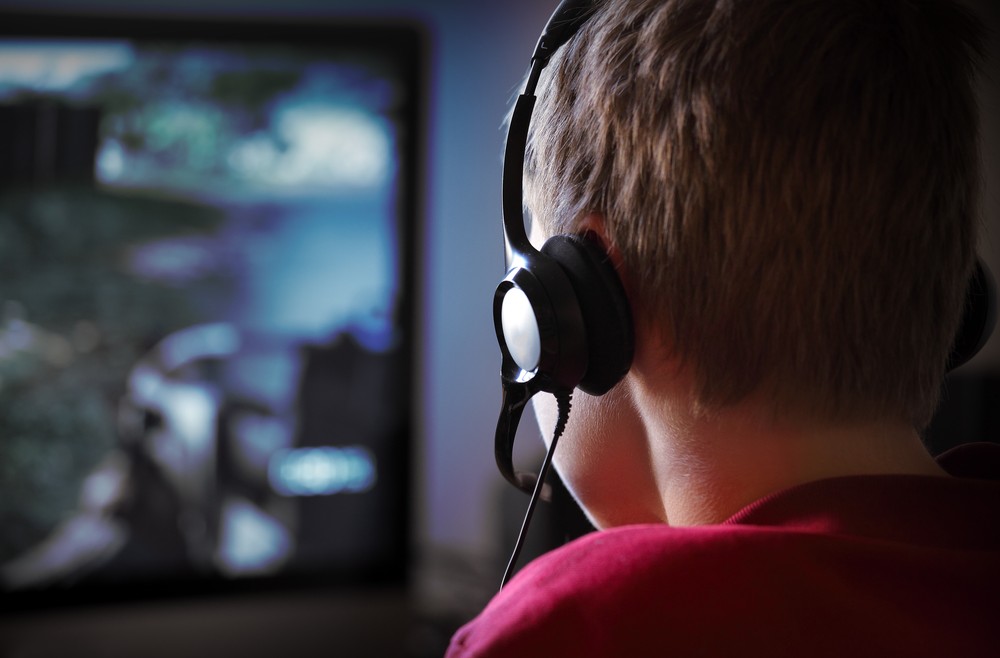The World Health Organisation (WHO) has recently recognised a new kind of mental health condition.
For many parents and psychotherapists alike it will be a familiar aliment, one that has been present in the family and clinic for many years now.
It is a disorder that psychotherapists have had difficulty finding language for, because up until June 18 it had not been classified.
But we all knew it was there. Because we have seen the devastation a family experiences when a member is suffering with the illness.
In my experience, its presence has destroyed relationships, family holidays, school attendance, personal hygiene, health and social interactions, to mention but a few of the consequences of this particular ailment.
The name of this new condition is ‘gaming disorder’ and it’s characterised by ‘a pattern of persistent or recurrent gaming behaviour’.
It shares many of the same commonalties as other addictive compulsions such as gambling or alcoholism.
A recent study found that when individuals are engaged in internet gaming ‘certain pathways in their brains are triggered in the same direct and intense way that a drug addict’s brain is affected by a particular substance’.
The American Psychiatric Association went further and stated that ‘gaming prompts a neurological response that influences feelings of pleasure and reward, and the result, in the extreme, is manifested as addictive behaviour.’
That is to say, not all teenagers playing games are addicts, but what the APA have outlined should serve as a loud warning bell to all parents of teenagers who are currently concerned about their child’s gaming habits.
In my clinical experience, parents often come looking for help when the behaviour has reached an intolerable level. They explain how they have been concerned for many years but never knew what to do.
And now that the behaviour has reached a level that is not only causing their child serious problems such as school refusal, it is also eroding the family structure itself, they now need professional help.
This has many similarities to any family living with a drug addict. And I am often faced with desperate parents looking for solutions to help their family from complete collapse.
And it is very difficult to break a habit when it has become so entrenched, of course it’s not impossible but it is difficult, so spotting the early warning signs that your child is moving on a trajectory towards addiction is vital if there is to be a successful outcome.
Signs that may indicate your child is becoming addicted to gaming:
1. Spending increasing time in their bedroom, and not meeting friends in real life
If you notice that your child is making excuses for not meeting up with their friends or is spending an inordinate amount of time in the bedroom, it could be an early warning sign that they are becoming addicted to online gaming.
2. A decrease in appetite
One client told me he had forgotten to eat for over 24 hours because he was so consumed with the game. And this is not an isolated incident. Many students I talk to about online gaming outline how they could easily go 16 hours without eating.
They become so engrossed in the game that they forget about basic human functions. Something as simple as personal hygiene can become an issue, when addiction is present.
3. They become angry or aggressive when you suggest they leave the bedroom
This is a very clear sign that a dangerous habit is forming. And if you notice this, you should seek professional advice. The longer you leave the habit form the more difficult it is to break.
The good news is all habits can be broken, but the longer they are allowed to exist the more entrenched they become.
4. A loss in real life activities
Often when addiction is forming activities that once brought joy become arduous and joyless. This is a key sign that addiction is present.
The very nature of many of these online games are designed to be addictive. When we think about gambling, the addictive compulsion is about risk and reward.
The potential to win money, negates the reality of what losing the money will mean for the gambler. So they lose control of reality.
Many online games are designed around the same premise; you can win the highest points or defeat the game.
And the creative forces involved in this world understand only too well what all this means for the young mind navigating this murky landscape.
But also in a teenager’s bid to beat the game the designers have devised an insidious way to make money, they sell additional content to help the gamer beat the game.
This drive to gain the highest points or defeat the game can, for some teenagers, become an all-consuming activity to the detriment of their mental and psychical health.
And parents need to be able to spot the warnings signs because. For some of these game designers they are quite literally shooting fish in a barrel when it comes to getting your child hooked on their products.
Next week I will discuss what steps you can take to help your child to overcome an online addiction or obsession.




